![Yamamoto, Eri / Chad Fowler / William Parker / Steve Hirsh: Sparks [2 CDs] (Mahakala Music) Yamamoto, Eri / Chad Fowler / William Parker / Steve Hirsh: Sparks [2 CDs] (Mahakala Music)](https://www.teuthida.com/productImages/misc4/31691.jpg)
Four of New York's most versed free jazz players--Eri Yamamoto on piano, Chad Fowler on stritch & Saxello, William Parker on bass and Steve Hirsh on drums--aim for a form of Spontaneous Folk Music through post-bop/free jazz idioms, recording in the studio for naturally lyrical music that builds from a beautiful glimmer to a passionate fire of masterful interaction.
In Stock
Quantity in Basket: None
Log In to use our Wish List
Shipping Weight: 3.00 units
EU & UK Customers:
Discogs.com can handle your VAT payments
So please order through Discogs
Sample The Album:
Eri Yamamoto-piano
Chad Fowler-stritch, Saxello
William Parker-bass
Steve Hirsh-drums
Click an artist name above to see in-stock items for that artist.
UPC: 195269151393
Label: Mahakala Music
Catalog ID: MAHA-027
Squidco Product Code: 31691
Format: 2 CDs
Condition: New
Released: 2022
Country: USA
Packaging: Digipack - 3 panel
Recorded at Park West Studios, in Brooklyn, New York, on October 7th, 2021, by Jim Clouse.
"When Eri Yamamoto, William Parker, Chad Fowler and Steve Hirsh settled in for their first recording session together, the engineer shouted "rolling" and sparks flew. But they weren't steel mill sparks: the music unfolding in that moment was more like a crackling campfire, smoke rising slowly, points of light lifting lazily into the breeze - and foreshadowing a greater heat to come.
Such an image is apt for the airy chords with which Yamamoto kicks off the title tune of Sparks, the quartet's new album on Mahakala Music. After her piano begins, like wind chimes playing standards, Parker and Hirsh fall in as if walking up from the woods, and then Fowler's saxello enters, do-re-mi-do, like a sprite carrying memories of a folk song.
"Spontaneous folk music," says Yamamoto with a ripple of laughter, recalling the phrase Fowler used to suggest the quartet's point of departure that day. And she responded immediately to the premise, as Yamamoto herself has created hybrid free/composed jazz that sometimes harkens back to the traditional Japanese music of her youth, as on her Goshu Ondo Suite. For over a quarter century, she's made waves as she "gracefully bridges the worlds of post-bop and free jazz" according to Time Out New York, with her "evocative songs without words."
A classically-trained pianist with a vibrant improvisational streak, she's long performed and recorded with William Parker, a composer in his own right and a mainstay of the New York free jazz community. Indeed, playing a session with Parker, who has pursued an unparalleled vision of free jazz since before his days with Cecil Taylor, and whose quartet recordings in this century are legendary, was an inspiration to all. "I've played on nine or ten albums with William as a leader," says Yamamoto. "He's really been an eye opener for me. It was like he reminded me, 'Ah, I can be free!' And he always writes great melodies, which is very natural for me: start with a good melody, and have a lot of open space."
With only those sentiments and a brief introductory chat guiding them, the players created these pieces on the spot. And like a strong line in visual art, a spontaneous, striking melody typically jumpstarts each performance on Sparks. That's always been at the core of Yamamoto's playing. "Growing up in Kyoto, I was surrounded by a lot of traditional Japanese music, with very minimalist melodies. I started writing music when I was eight, and I still write the same way. It all starts when I hum some melody. But even with my composed tunes, my approach is to leave a lot of space for musicians to go beyond the form."
Space is another key element on this album. "Kyoto is a very old city, with a lot of shrines and temples," says Yamamoto. "And zen philosophy is very prominent there. Sometimes emptiness is more full of feeling." The space is crucial to even the more lively passages. When Parker announces, "I can pull an old rabbit out of the hat" and launches the swinging "Bob's Pink Cadillac," Fowler and Hirsh immediately pick up on the groove, spontaneously evoking the classic trio sound of, say, Sonny Rollins' Way Out West. Yamamoto is content to listen, until she's not: reaching into the piano with her left hand, her right hand chops the keys like rim shots. As the tune evolves, Fowler squawks, Hirsh rolls, and Yamamoto is up and down from her seat, first muting strings, then playing traditionally, then plucking the strings like a ragged harp.
"That was completely spontaneous. I don't plan anything, in general. Then after I play, I don't remember anything," Yamamoto laughs, recalling the performance. "But the piano is a percussion instrument, after all. On that one particular tune, I felt, 'I'm gonna wait until the moment comes.' And then, Boom!"
Such dynamics were typical of the day. As Fowler notes, "We expected this session to be laid back. And there are some moments of beauty and tenderness, but it was anything but mellow, overall." That's partly thanks to Hirsh's perceptive drumming, ranging from the gentle rattle of shells to to full on Klook-mopping and bomb-dropping as the intensity demands.
Ultimately, the rapid-fire energy, the screeching and hammering, was a natural corollary to the music's spaciousness. For Yamamoto, it's all about dramatic juxtapositions. "I always like contrast in music," she reflects. "Or in anything. Paintings, poems. The contrast makes art, especially music, more interesting. When I play something, yes, at some points the dynamics get very intense with more notes, but after that, in contrast, having a chunk of space is pretty powerful. That empty spot has more meaning. So I try not to do too much all the time. If I say something, then in the other spot I want to have a chunk of space."
The miracle of these performances was how well each player tuned in to the others' dynamics, in the moment. Though Fowler and Yamamoto had each played with Parker separately, the saxophonist and pianist had never played together. As it turned out, they surprised each other with some distinctly Asian touchstones at the core of their playing. "'Taiko' is named after my Japanese grandmother, Taiko 'Jean' Sawyer, who passed at 92 in late April of last year," says Fowler. "Before we started it, I asked the group to play something as a memorial for a lost loved one. My playing references some music of meaning to my grandma, including a minor key version of 'You Are My Sunshine,' her favorite song. None of that was planned, but it came out as we went."
All told, there's an infectious joy felt as these players encounter each other in this arrangement for the first time. As Yamamoto says, "That was the first time I'd been in a recording studio for a year and half. New York City was locked down for a long time. And I'd never played with Chad or Steve before. But I could tell, just from our first greeting, that we could trust each other. So, returning to the studio with such wonderful musicians, I felt so alive. I said to myself, 'Yes! Yes!'"
She pauses and reflects on the final product. "The four of us really made one music together. Everything was just one take, and I think we really blended well. No one was shy. We just trusted each other and made one sound. Instead of going, 'I'm saying blah blah blah,' and then answering, 'da da da da,' we made one moment together. Spontaneous folk music. Improvising that moment together." "-Mahakala
Artist Biographies
• Show Bio for Eri Yamamoto Eri Yamamoto Pianist/ Composer Since moving to the United States in 1995, Eri Yamamoto has established herself as one of jazz's most original and compelling pianists and composers. Jazz legend Herbie Hancock has said, "My hat's off to her... already she's found her own voice." The Eri Yamamoto Trio has developed a unique sound and repertoire, and has built a strong following in New York and abroad. They have recently toured the U. S., Canada, Europe, and Japan, with appearances at major festivals in Jazz en Raffale, Canada; Cheltenham, England; Terrassa, Spain; Bray/Derry, Ireland; Time Zones in Bari, Italy; and Shiga, Japan. Eri has also been collaborating with such creative and celebrated musicians as William Parker, Daniel Carter, Hamid Drake, Federico Ughi, and Yves Léveillé. In 2009, Eri composed trio music to accompany the 1932 silent film by the master director, Yasujiro Ozu, I Was Born But... This music was premiered in a festival in Munich, Germany, and five of the songs appear on her CD, In Each Day, Something Good. In 2012 release, her latest trio CD, The Next Page on AUM Fidelity Label is her eighth CD as a leader. Her ten new compositions evoke a wide range of images and moods, inspired by moments of grace in her daily life, and her encounters of natural beauty at home and throughout her travels. Eri has also developed a personal voice as a solo pianist, and has moved audiences with her renditions of her own compositions and her spontaneous improvisations. In 2008, she gave a nine-concert solo tour of Italy to popular and critical acclaim. She has also given solo concerts in Japan and the United States. Since 2009, Eri has had a special collaboration with French-Canadian pianist Yves Léveillé, performing at several concerts and clubs throughout Canada. In 2010, they released a CD, Pianos, that features 10 of their original compositions in duo and solo settings. They added multi-reed virtuoso Paul McCandless to their ensemble, and recently toured Canada, where they deeply moved audiences with their lyrical and compelling music. Eri was born in Osaka, Japan, and began playing classical piano at age three. She started composing when only eight years old, and studied voice, viola, and composition through her high school and college years. In 1995, she visited New York for the first time, and by chance heard Tommy Flanagan performing. She was so inspired by her first experience of a jazz piano trio that she decided on the spot to move to New York and dedicate herself to learning jazz. Later that year, Eri entered the New School University's prestigious jazz program, where she studied with Reggie Workman, Junior Mance, and LeeAnn Ledgerwood. In 1999, while still in school, she started playing regularly at the Avenue B Social Club, a popular spot among jazz musicians in the East Village. There she developed a musical friendship with fellow pianist Matthew Shipp. Since 2000, Eri's trio has been appearing regularly at Arthur's Tavern, a historic jazz club in New York's Greenwich Village. In addition to her European performances, she has performed at the Hartford International Jazz Festival, An Die Musik in Baltimore, and Lincoln Center Summer Festival in New York City. Eri has appeared on two William Parker recordings, Luc' s Lantern and Corn Meal Dance, and has performed in Italy, Holland, Norway, Tunisia and Portugal with his trio and sextet. She has also worked with such musical luminaries as Ron McClure, Andy McKee, Lewis Barns, Rob Brown, Leena Conquest, Butch Morris, Arthur Kell, Kevin Tkacs, and Whit Dickey. Finally, Eri is a gifted educator. She received her master of music in education and composition from Shiga University, Japan. She has taught private lessons and workshops to jazz musicians of all instruments from the U. S., Japan, Europe, and North Africa. www.eriyamamoto.com eri@eriyamamoto.com Eri Yamamoto bio, p. 2 ^ Hide Bio for Eri Yamamoto • Show Bio for Chad Fowler "I'm Chad Fowler. I write books, write and play music, write software, lead organizations (currently for Microsoft, in Berlin), invest in startups, speak at conferences, teach, learn, organize conferences, etc. I started and co-organized a couple of Ruby-related conferences including The International Ruby Conference and RailsConf." ^ Hide Bio for Chad Fowler • Show Bio for William Parker "William Parker is a bassist, improviser, composer, writer, and educator from New York City, heralded by The Village Voice as, "the most consistently brilliant free jazz bassist of all time." In addition to recording over 150 albums, he has published six books and taught and mentored hundreds of young musicians and artists. Parker's current bands include the Little Huey Creative Music Orchestra, In Order to Survive, Raining on the Moon, Stan's Hat Flapping in the Wind, and the Cosmic Mountain Quartet with Hamid Drake, Kidd Jordan, and Cooper-Moore. Throughout his career he has performed with Cecil Taylor, Don Cherry, Milford Graves, and David S. Ware, among others." ^ Hide Bio for William Parker • Show Bio for Steve Hirsh Steve Hirsh: "About Me I come from a non-musical family. But every week growing up, I'd get my allowance and go to the local record store to pick up the latest hit. At 10 years old, I started guitar lessons at a neighborhood community center. I wanted to learn Beatles tunes but instead found myself learning classical guitar. I wasn't into it and stopped after a year. Then in junior high, I had a band/orchestra class. I started off playing alto sax. But in the summer after my first year, I got braces on my teeth and my orthodontist told my mother that playing a reed instrument would be bad for my overbite. So in my second year, I started on drums because I figured it would be the easiest instrument to catch up on. The bug bit me then, and I would spend hours playing along to records on my snare drum. I went to a specialized public high school in New York City that focused on math and science. They had no music classes, except for a single music appreciation class that dealt entirely with European classical music. There was one Black girl in my class (!). One day she asked the teacher why he didn't teach anything about jazz and Miles Davis and John Coltrane. That was the first time I heard those names. The teacher said something dismissive and moved on. Somewhere around there I got my first drum set and was trying to figure out how to play it. One day in the library, I was thumbing through the record collection and came across Kind of Blue and Blue Trane. I remembered hearing Miles' and Trane's names and took the records home. I was astounded by what I heard, particularly drummer Philly Joe Jones on Blue Trane. I had no idea what or how he was playing and could hardly believe that there was only 1 drummer. Over the next 10 or so years, I dove deeper and deeper into the music. I worked forwards and backwards - Bitches Brew-era Miles, and late John Coltrane, and Max and Bird and then everyone in between, and then back to Basie and Ellington and Papa Jo Jones. I was playing in rock and blues bands and saw jazz drumming as beyond my abilities. After my 2nd year of college, I told my parents that I wanted to transfer to Berklee College of Music. But I had no one to help me navigate that change and I was unable to do it myself. Eventually, I just quit college, moved to California, and started playing in bands. I wound up hanging out and then working at Keystone Korner. I saw everyone there - Dexter Gordon, Max Roach, Art Blakey, Rhasaan Roland Kirk, Stan Getz, Mary Lou Williamson, the house band with George Cables and Eddie Marshal, Billy Higgins, Woody Shaw, Elvin Jones. And I started trying to play the music. But eventually, I quit playing for a variety of reasons, including the inability to believe I could really ever play it well and authentically, and the need to get away from the drug scene (this was San Francisco in the mid-'70s). But I never stopped listening, and eventually went back to playing in rock and blues bands. I quit playing again in the early 80s but then picked it back up 20 years later when I bought my son a drum set. I bought it for him, then took it over (I sat down behind it to check it out and didn't come out for a week.). I've been playing steadily since then. I played a lot of straight-ahead jazz gigs, a lot of dinner jazz. But I always had a taste for the more outside sounds, and for the last few years, that's exclusively what I've been playing. I have led several improvising ensembles in the last few years, and have played most of the Twin Cities venues that are open to this music, including Khyber Pass Cafe, The Icehouse, Jazz Central Studios, The Cedar Cultural Center, and Grand Oak Opry. I started a regular series at the East Side Freedom Library in St. Paul, featuring my groups and other improvising ensembles. I also hosted a weekly open session there, where anyone could come and gain experience improvising with experienced players. I've played with (among others) William Parker, Joel Futterman, Eri Yamamoto, Matthew Shipp, Ivo Perelman, Luke Stewart, Douglas Ewart, Babatunde Lea, George Cartwright, Donald Washington, Chad Fowler, Zoh Amba, Brad Holden, Dick Studer, Josh Granowski, Matt Trice, Kavyesh Kaviraj, and DeVon Russell Grey. In the past year, with the isolation of the pandemic and the near-total loss of performance opportunities, I have become involved in several remote collaborations, with both old and new friends. There are a few of those on the Recordings page, if you're curious. My latest releases are Ebb & Flow, with Joel Futterman and Chad Fowler, Notice That There, with Geirge Cartwright, Chad Fowler, Christopher Parker and Kelley Hurt, Warp & Weft, a collaboration with the extraordinary pianist Joel Futterman, Two Five None, a duo with Chad Fowler, and You Know When It's Time by Original Mind, all on Mahakala Music https://mahakalamusic.bandcamp.com/. There's more stuff coming - follow me on Bandcamp, follow Mahakala Music, and send me a note asking to be added to my email list. I endorse Canopus drums and Bosphorus cymbals. Beautiful instruments I'm lucky to play. Born and raised in New York City, I now make my home in the woods of Northern Minnesota." ^ Hide Bio for Steve Hirsh
1/14/2026
Have a better biography or biography source? Please Contact Us so that we can update this biography.
1/14/2026
Have a better biography or biography source? Please Contact Us so that we can update this biography.
1/14/2026
Have a better biography or biography source? Please Contact Us so that we can update this biography.
1/14/2026
Have a better biography or biography source? Please Contact Us so that we can update this biography.
Track Listing:
CD1
1. Sparks 14:39
2. In The Garden 15:47
3. Bob's Pink Cadillac 19:01
CD2
1. Taiko 22:12
2. Real World 17:32
Improvised Music
Jazz
Free Improvisation
Collective & Free Improvsation
NY Downtown & Metropolitan Jazz/Improv
Quartet Recordings
Parker, William
Staff Picks & Recommended Items
New in Improvised Music
Search for other titles on the label:
Mahakala Music.


![Yamamoto, Eri / Chad Fowler / William Parker / Steve Hirsh: Sparks [2 CDs] (Mahakala Music) Yamamoto, Eri / Chad Fowler / William Parker / Steve Hirsh: Sparks [2 CDs] (Mahakala Music)](https://www.teuthida.com/productImages/full/31691.Full.jpg)

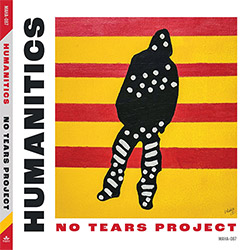
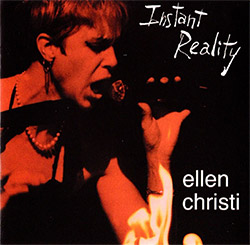
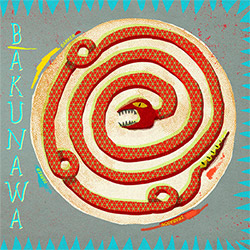


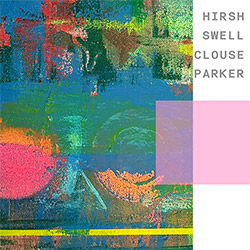
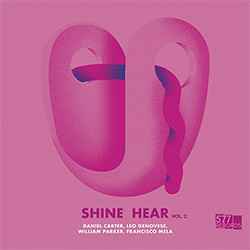
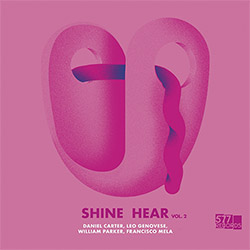
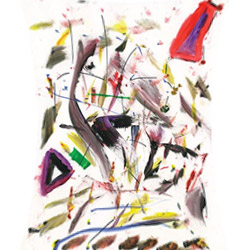
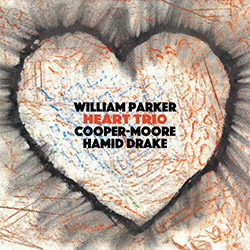

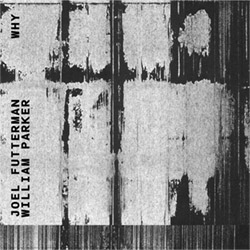
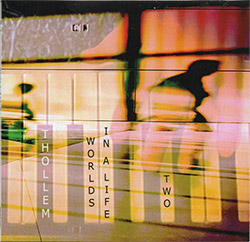
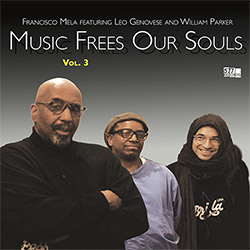



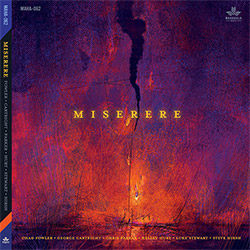
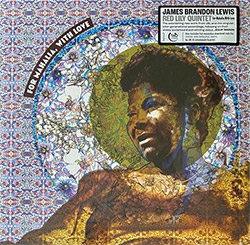

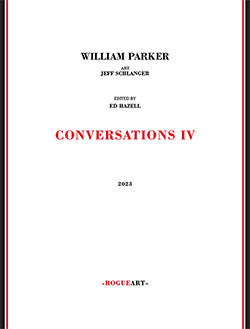
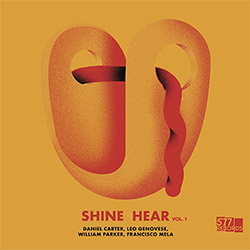

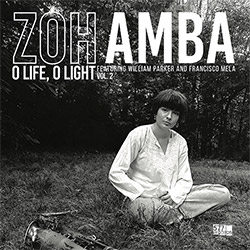
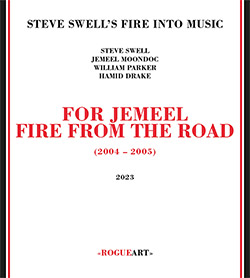



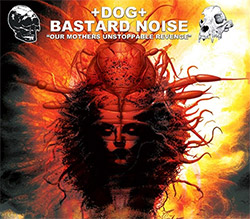



![Parker, Evan / Andrea Centazzo: Bullfighting On Ice! Live In Padova 1977 [VINYL]](https://www.teuthida.com/productImages/misc4/37064.jpg)
![Curran, Alvin / Andrea Centazzo / Evan Parker: Real Time [VINYL]](https://www.teuthida.com/productImages/misc4/37065.jpg)
![Curran, Alvin / Andrea Centazzo / Evan Parker: Real Time Two [VINYL]](https://www.teuthida.com/productImages/misc4/37066.jpg)

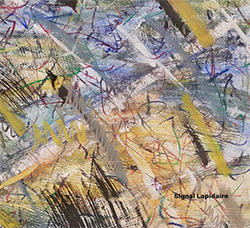

![Rodrigues, Ernesto / Jung-Jae Kim / Guilherme Rodrigues / Eric Bauer / Stephen Flinn: 5 In The Afternoon [2CDs]](https://www.teuthida.com/productImages/misc4/36957.jpg)

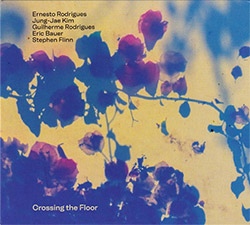





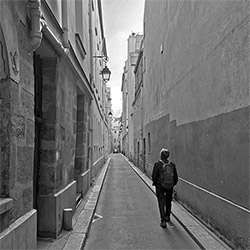
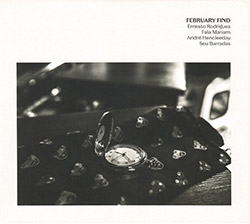




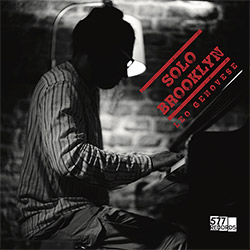
![Coley, Byron / Mats Gustafsson / Thurston Moore: Now Jazz Now: 100 Essential Free Jazz & Improvisation Recordings (1960-80) [BOOK]](https://www.teuthida.com/productImages/misc4/36932.jpg)
![Evans, Peter / Being & Becoming: Ars Ludricra [VINYL + DOWNLOAD]](https://www.teuthida.com/productImages/misc4/37026.jpg)
![HobbyHouse (Mia Dyberg / Axel Filip): HobbyHouse [CD + DOWNLOAD]](https://www.teuthida.com/productImages/misc4/36944.jpg)
![Mines, Kelsey / Erin Rogers: Scratching At The Surface [CD + DOWNLOAD]](https://www.teuthida.com/productImages/misc4/36945.jpg)
![Nebbia, Camila (feat/ Marilyn Crispell / Lesley Mok): A Reflection Distorts Over Water [CD + DOWNLOAD]](https://www.teuthida.com/productImages/misc4/36946.jpg)
![Vanheerentals, Adia: Taking Place [CD + DOWNLOAD]](https://www.teuthida.com/productImages/misc4/36947.jpg)
![Mines, Kelsey / Vinny Golia: Collusion and Collaboration [CD + DOWNLOAD]](https://www.teuthida.com/productImages/misc4/36948.jpg)
![Parkins, Zeena: Lament For The Maker [CD + DOWNLOAD]](https://www.teuthida.com/productImages/misc4/36949.jpg)
![Evans, Peter / Mike Pride : A Window, Basically [CD + DOWNLOAD]](https://www.teuthida.com/productImages/misc4/36950.jpg)
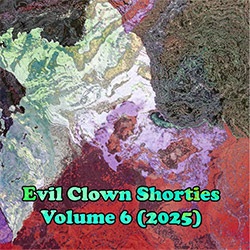
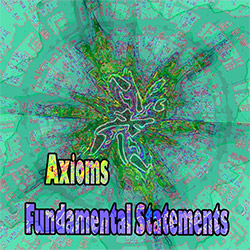

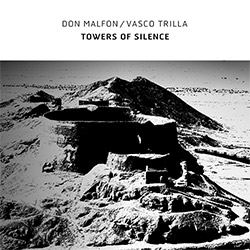
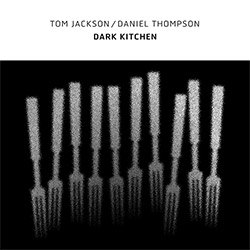

![Agnel, Sophie: Learning [VINYL]](https://www.teuthida.com/productImages/misc4/36841.jpg)
![Monaco, Amanda (w/ Michael Attias / Sean Conly / Satoshi Takeishi) : Deathblow [VINYL+ DOWNLOAD]](https://www.teuthida.com/productImages/misc4/36956.jpg)
![Belorukov, Ilia / Alex Riva: Wrestling For Futility [CASSETTE w/DOWNLOAD]](https://www.teuthida.com/productImages/misc4/36994.jpg)


![Genthon, Anouck / Lionel Marchetti: Suite Blanche [2 CDs]](https://www.teuthida.com/productImages/misc4/36642.jpg)
![Toeplitz, Kasper T.: Erosions Programmees [CD + BOOKLET]](https://www.teuthida.com/productImages/misc4/36639.jpg)
![Gate, The : Almost Live [CASSETTE + MAGAZINE]](https://www.teuthida.com/productImages/misc4/36836.jpg)






![A Magic Whistle: The Solar Cell [VINYL]](https://www.teuthida.com/productImages/misc4/36658.jpg)

![McGee, Hal: Columbus Expedition [Cassette w/ Download]](https://www.teuthida.com/productImages/misc4/36650.jpg)


![Jaeger, Kassel: Fernweh [VINYL 2 LPs]](https://www.teuthida.com/productImages/misc4/36541.jpg)





![+DOG+: The Light Of Our Lives [2 CDs]](https://www.teuthida.com/productImages/misc4/36009.jpg)


![Frey, Jurg : Composer, Alone [3 CDs]](https://www.teuthida.com/productImages/misc4/36927.jpg)








![Frey, Jurg with ensemble]h[iatus: Je Laisse A La Nuit Son Poids D](https://www.teuthida.com/productImages/misc4/36988.jpg)




![Pisaro-Liu, Michael: Within (2) / Appearance (2) [2 CDs]](https://www.teuthida.com/productImages/misc4/36831.jpg)










![Musicworks Magazine: #151 Summer 25 [MAGAZINE + CD]](https://www.teuthida.com/productImages/misc4/36559.jpg)

![Brown, Dan / Dan Reynolds: Live At The Grange Hall [unauthorized][CASSETTE]](https://www.teuthida.com/productImages/misc4/36245.jpg)



![Zorn, John: The Song of Songs [CD + CD BOOK]](https://www.teuthida.com/productImages/misc4/36923.jpg)

![Coultrain: Mundus [COLORED VINYL]](https://www.teuthida.com/productImages/misc4/33056.jpg)
![Hprizm: Signs Remixed [COLORED VINYL]](https://www.teuthida.com/productImages/misc4/30635.jpg)
![Halls Of the Machine: All Tribal Dignitaries [CASSETTE w/ DOWNLOAD]](https://www.teuthida.com/productImages/misc4/36134.jpg)



![Koenjihyakkei: Live at Club Goodman [2 CDs]](https://www.teuthida.com/productImages/misc4/36111.jpg)

![Sorry For Laughing (G. Whitlow / M. Bates / Dave-Id / E. Ka-Spel): Rain Flowers [2 CDS]](https://www.teuthida.com/productImages/misc4/35985.jpg)

![Rolando, Tommaso / Andy Moor : Biscotti [CASSETTE w/ DOWNLOADS]](https://www.teuthida.com/productImages/misc4/36106.jpg)


![Electric Bird Noise / Derek Roddy: 8-10-22 [CD EP]](https://www.teuthida.com/productImages/misc4/35970.jpg)








![Elephant9 : Mythical River [VINYL]](https://www.teuthida.com/productImages/misc4/34624.jpg)



![Elephant9 with Terje Rypdal: Catching Fire [VINYL 2 LPs]](https://www.teuthida.com/productImages/misc4/35355.jpg)
![Coley, Byron: Dating Tips for Touring Bands [VINYL]](https://www.teuthida.com/productImages/misc4/17906.jpg)

![Lost Kisses: My Life is Sad & Funny [DVD]](https://www.teuthida.com/productImages/misc4/lostKissesDVD.jpg)